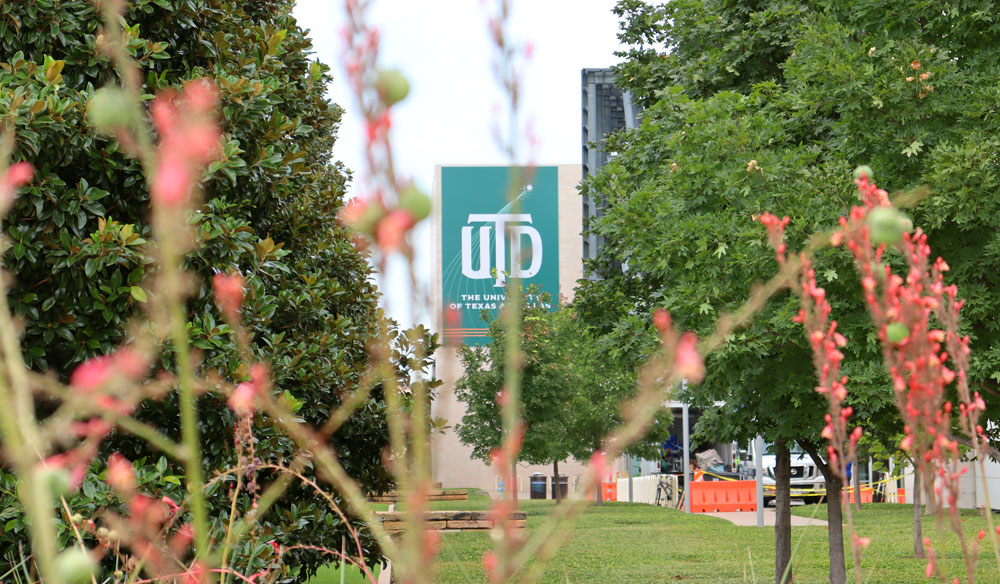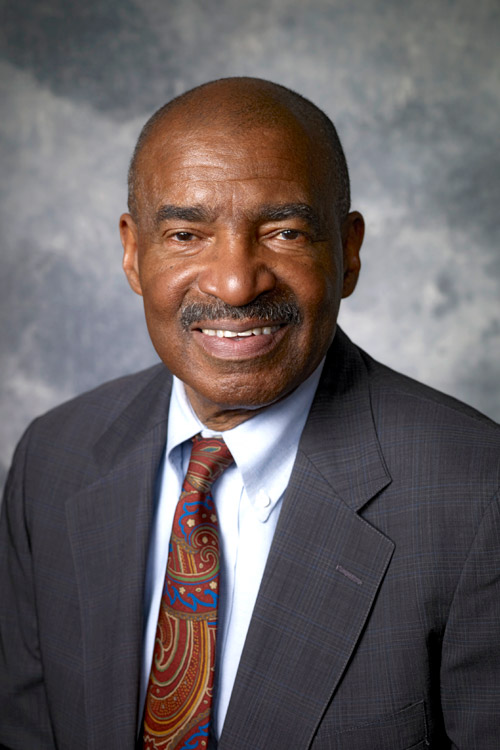
The University of Texas at Dallas will create a new academic minor, enhance faculty and staff training, develop a campus police oversight committee and adopt other initiatives recommended by a task force formed to address concerns about racism, equity and inclusion on campus.
The Living Our Values Task Force, composed of 23 student, faculty and staff representatives, was established in June and will continue working at least through the end of September. The University extended its work, originally planned to end in August, to give members more time to develop recommendations. After that, the charge of the task force will be transferred to permanent shared-governance structures within the University.
“The Living Our Values Task Force has brought together students, faculty and staff representatives for candid conversations about improving racial equity and inclusion on campus. I am proud of the progress the task force has made so far and look forward to additional recommendations to strengthen our commitment to community, diversity and tolerance,” said UT Dallas President Richard C. Benson, the Eugene McDermott Distinguished University Chair of Leadership. Benson has supported the following task force recommendations:
- Develop and approve proposals for new minors in African and African diaspora studies and/or ethnic studies as a first step toward exploring degree programs in these areas. The School of Arts and Humanities currently offers a range of courses on African American history and literature that could become part of a new minor program.
- Form a police oversight committee to promote transparency between the UT Dallas Police Department (UTDPD) and the University community. The oversight committee initially was recommended by a police task force formed prior to the Living Our Values Task Force, which endorsed its creation. The oversight committee would receive quarterly reports from the chief of police on arrests, use-of-force incidents, citations issued and any complaints made against UTD officers. It also would work with the police department to identify and promote outreach opportunities for UTDPD in the University community, survey the community about its attitudes toward the department and host a forum for the public to ask questions of UTDPD leadership at least twice per year.
- Ensure fraternities and sororities educate members on the University’s nondiscrimination policy and promote cultural intelligence training for all UT Dallas fraternity and sorority members.
- Commit to providing additional diversity and inclusion training for faculty and staff, especially supervisors. In addition, the University will conduct a campus climate survey and needs assessment and continue to support Employee Resource Groups to help attract and retain a diverse community and foster a welcoming culture on campus.
- Expand outreach and recruitment efforts for underrepresented student populations with an emphasis on schools in the Dallas Independent School District and surrounding districts in historically underserved communities.
“The Living Our Values Task Force has taken important steps to address issues of inequality and racial bias brought forward by the UT Dallas community,” said Dr. George Fair, task force co-chair, vice president for diversity and community engagement, and dean of the School of Interdisciplinary Studies. “We value the input we have received from students, faculty and staff, and will continue to work to improve the University’s commitment to providing a welcoming and inclusive campus for all.”
Task force co-chair Rafael Martín, UT Dallas vice president and chief of staff, said the group has focused on concerns that could be resolved immediately, while a new structure and mechanism will be set up to address issues going forward.
“The task force was created to respond to specific concerns of the student body, staff and faculty, and I think we have done a good job of addressing issues that could be affected in the short term,” Martín said. “The task force is now working to transition its charge to structures within the University that are better suited to addressing issues that require longer-term, structural solutions. The mechanisms of shared governance must be fully engaged to ensure an ongoing focus on issues of diversity, equity and inclusion, and to hold our institution accountable for addressing them.”

“The Living Our Values Task Force has taken important steps to address issues of inequality and racial bias brought forward by the UT Dallas community. We value the input we have received from students, faculty and staff, and will continue to work to improve the University’s commitment to providing a welcoming and inclusive campus for all.”
Dr. George Fair, task force co-chair, vice president for diversity and community engagement, and dean of the School of Interdisciplinary Studies
Participants included members of the Black student body and Black Faculty and Staff Alliance, which raised issues with the University this summer.
Tamara Havis, a computer engineering senior and one of six student representatives who wrote to Benson in June to request changes, said the task force process has been difficult, involving more than 300 hours of volunteer service. She said achieving campus equity will require an effort by the entire University to make campus welcoming and comfortable for Black students.
“UTD cannot accept the positivity of having different cultures without acknowledging the detriments that some of the cultures face in their heritage — such as systematic racism toward Black people. And with the creation of the task force, it is my hope the University is working to change that,” Havis said.
She believes the task force has done a good job of working to develop new metrics for measuring campus diversity, with various departments working to adopt its recommendations.
“The things we do today on the task force will not go unseen. I hope the work done by the task force will continue to resonate after its conclusion and be the first step of putting UTD on the right side of history,” Havis said.

“I think we have done a good job of addressing issues that could be affected in the short term. The task force is now working to transition its charge to structures within the University that are better suited to addressing issues that require longer-term, structural solutions.”
Rafael Martín, task force co-chair and UT Dallas vice president and chief of staff
Stevesha Evans, a history graduate student on the task force, agreed.
“The task force is working diligently to make UT Dallas a more inclusive and safer place for our BIPOC [Black, indigenous and people of color] students, faculty and staff. It has been a pleasure being a part of this committee, and I look forward to seeing these changes come to fruition,” she said.
Three faculty task force members said in a joint statement that the group’s efforts are an opportunity to address the University’s Strategic Plan to recruit women and underrepresented groups for faculty, staff and administrative positions, and to implement proven retention methods for both tenure-track and nontenure-track, underrepresented minority faculty.
“The things we do today on the task force will not go unseen. I hope the work done by the task force will continue to resonate after its conclusion and be the first step of putting UTD on the right side of history.”
Tamara Havis, a computer engineering senior who served on the task force
“Our recommendations include strategic long-term plans that emphasize strong mentorship of junior faculty and implementing leadership roles within the University schools to address hiring practices, equity and retention. We have further meetings planned with University leaders to suggest the details of these and other recommendations, and look forward to the action items making a difference in the job environment for all employed at UT Dallas,” the faculty members said.
Task force member Arthur Gregg, assistant vice president for multicultural affairs and director of the Multicultural Center, said, “This is one of the most passionate and productive task forces that I’ve worked on at UT Dallas. I know that we are helping UT Dallas be a more diverse and inclusive campus beyond the numbers that we pride ourselves on.”
Living Our Values Task Force
Co-Chairs
- Dr. George Fair, vice president for diversity and community engagement; dean of the School of Interdisciplinary Studies (IS)
- Rafael Martín, vice president and chief of staff
Faculty
- Teodoro Benavides associate professor of practice of public and nonprofit management, School of Economic, Political and Policy Sciences
- Dr. Rashaunda Henderson, associate professor of electrical engineering; fellow, Eugene McDermott Professor, Erik Jonsson School of Engineering and Computer Science
- Dr. Toyah Miller, associate professor of organizations, strategy and international management, Naveen Jindal School of Management (JSOM)
Students
- Jenelle Boyce, healthcare studies senior
- Safwan Chowdhury, arts, technology, and emerging communication junior
- Jasmine Cook, business administration senior
- Stevesha Evans, history graduate student
- Arlene Gyimah, political science senior
- Tamara Havis, computer engineering senior
- Ayomide Irabor-Musa, healthcare studies junior
- Axum Taylor, interdisciplinary studies junior
- Chizuruoke Ukachi-Nwata, speech-language pathology and audiology senior
Staff
- Dr. Lea Aubrey, director of the Student Health Center
- Dr. Kimberly Burdine, assistant director, training director and psychologist in the Student Counseling Center
- Heather Dragoo, director of institutional equity and equal employment opportunity; Americans with Disabilities Act coordinator, Institutional Compliance, Equity, and Title IX Initiatives
- Arthur Gregg, assistant vice president for multicultural affairs; director of the Multicultural Center
- Richard Innis, financial analyst, Center for Vital Longevity
- Dr. Brandon Johnson, associate dean of undergraduate education
- Pinky Reyes, project coordinator, JSOM dean’s office
- Carmen Tanner, assistant director of financial aid
- Dr. Shaun Wilson, research associate in IS and the Office of Diversity and Community Engagement